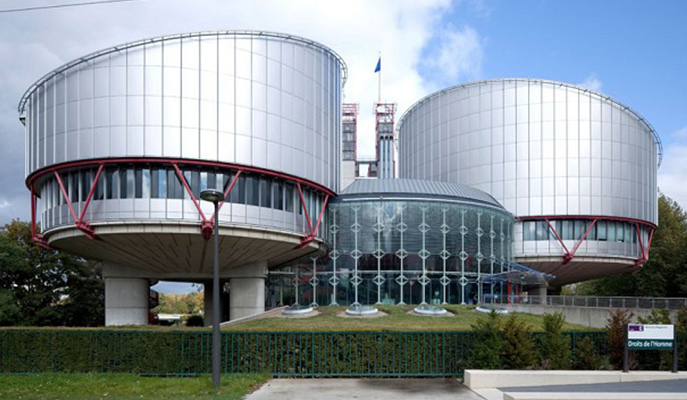Interstate Dispute: Georgia v. Russia was ended with Victory of Georgia in the European Court of Human Rights
January 21, 2021

On January 21, 2021, the European Court of Human Rights (ECtHR) rendered the Judgment in connection with August War of 2008 in the case of Georgia v. the Russian Federation pending for 12 years.
Human Rights Center (HRC) congratulates every citizen of Georgia and every person affected by the War and occupation on this significant victory. According to the assessment by HRC, the Judgment exceeds the scales of one or few countries and is an important message for the protection of human rights in the European space having an impact on hearing of similar types of interstate disputes.
The interstate application on the case of the August War was filed with the ECtHR on August 11, 2008; the first hearing on merits of the case was held in September 2011; the case was handed to the Grand Chamber in April 2012; witnesses were heard in the Court in June 2016; and the last hearing was held in May 2018.
In the interstate dispute, Georgia accused the Russian Federation of violating 8 articles of the Convention. In particular, Georgia believes that Russia violated the following articles of the European Convention during the war and subsequent occupation: Right to life (Article 2); Prohibition of torture or inhuman or degrading treatment or punishment (Article 3); Right to liberty and security (Article 5); Right to respect of private and family right (Article 8); Right to an effective remedy (Article 13); Protection of property (Article 1 of Protocol 1); Right to education (Article 2 of Protocol 1); Freedom of movement (Article 2 of Protocol 4).
HRC has been actively involved since 2008 and represents the interests of the victims of the War victims at the national level, as well as in the ECtHR and the International Criminal Court. As soon as the fighting was seized, the representatives of HRC began to document the alleged offenses in the villages of Tskhinvali region the access to which were soon lost by the central government of Georgia and are now beyond the line of occupation. The individual applications prepared based on the evidence obtained, HRC sent to the ECtHR in 2009 on behalf of the victims of the War.
The next stage in hearing the interstate dispute will be the consideration of the individual applications related to the same issue. Therefore, the Judgment will be crucial for the protection of the rights of each of the beneficiaries of HRC, whose interests are currently being protected by HRC at the international courts.
The Grand Chamber of the Strasbourg Court comprising 17 judges announced the Judgment today at 14:00 Tbilisi time. The Judgment is final and may not be subject to review.
The Court agreed to almost all arguments by Georgian side and found that the Russian Federation had violated the following articles of the Convention during the War of 2008 :
- Right to life (Article 2);
- Prohibition of torture, inhuman or degrading treatment or punishment (Article 3);
- Right to freedom and security (Article 5);
- The right to respect of private and family life (Article 8);
- The right to effective remedy (Article 13); Protection of property (Article 1 of Protocol 1);
- Freedom of movement (Article 2 of Protocol 4).
The Judgment of the Court is of outmost significance, as the Court has unequivocally established that the Russian Federation had exercised “effective control” over the occupied territories of Georgia: Abkhazia and the Tskhinvali region.
By the Judgment, the ECtHR on one hand underlined the territorial integrity of Georgia within its internationally recognized borders, and on the other hand, the Court recognized the exercise of effective control over these territories by Russia which is a prerequisite for the legal responsibility of Russia for the facts of violation of the European Convention during the August War.
The ECtHR agreed to the argument of Georgian State regarding the ethnic cleansing on the part of Russia and found that Russia is responsible for the deliberate burning down, looting and destructing the Georgian villages within Tskhinvali region and the territories adjacent to it. On the background of such ethnic cleansing and continued occupation, thousands of Georgians have been forcibly evicted from their homes and up to date they are restricted in their rights to freedom of movement, right to enjoy the property and respect of family life.
Human Rights Center
News
December 13, 2023
Ethnic minorities outside the peace dialogue
November 6, 2023
‘Peace’ agenda of political parties
Popular
Articles
February 13, 2024



